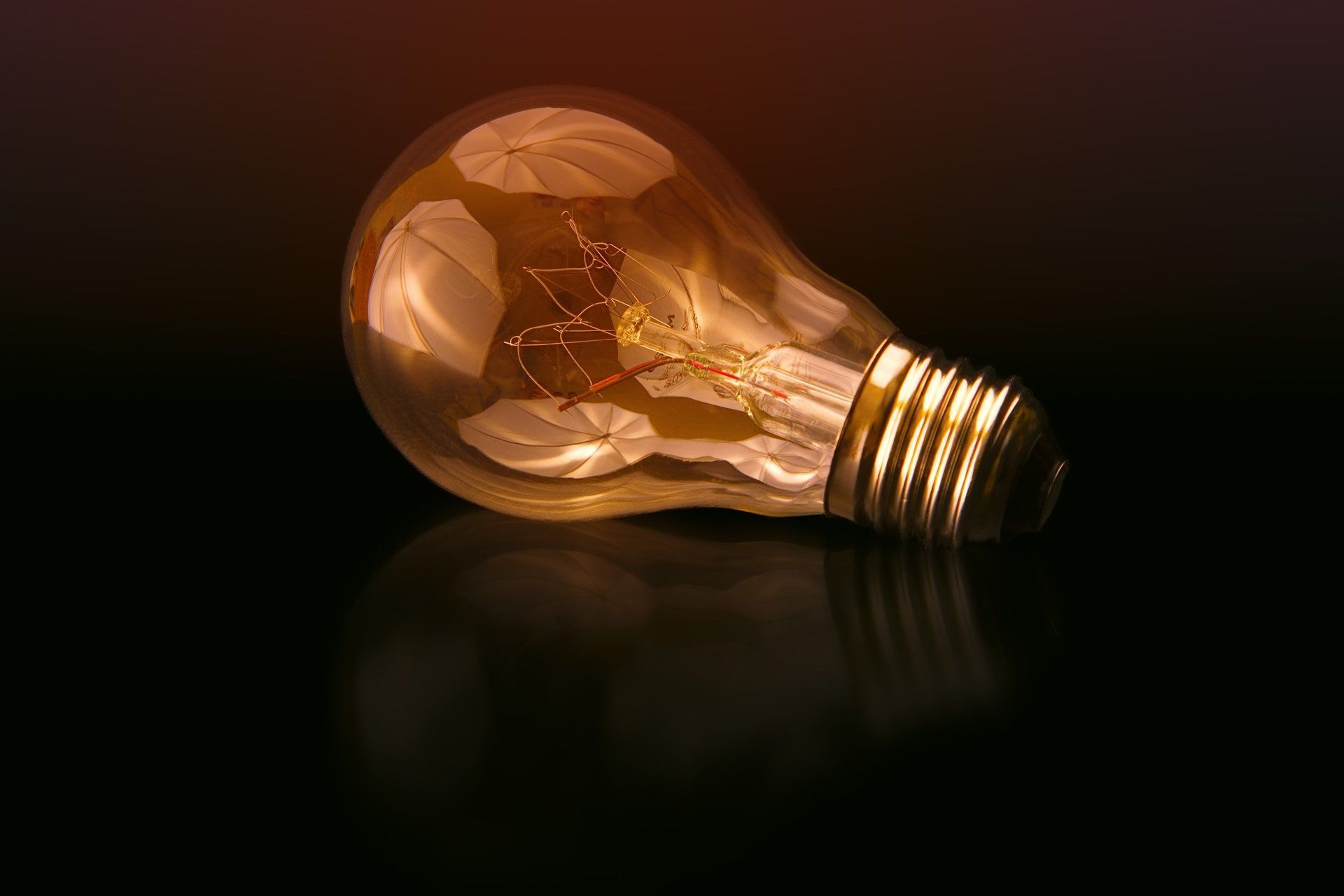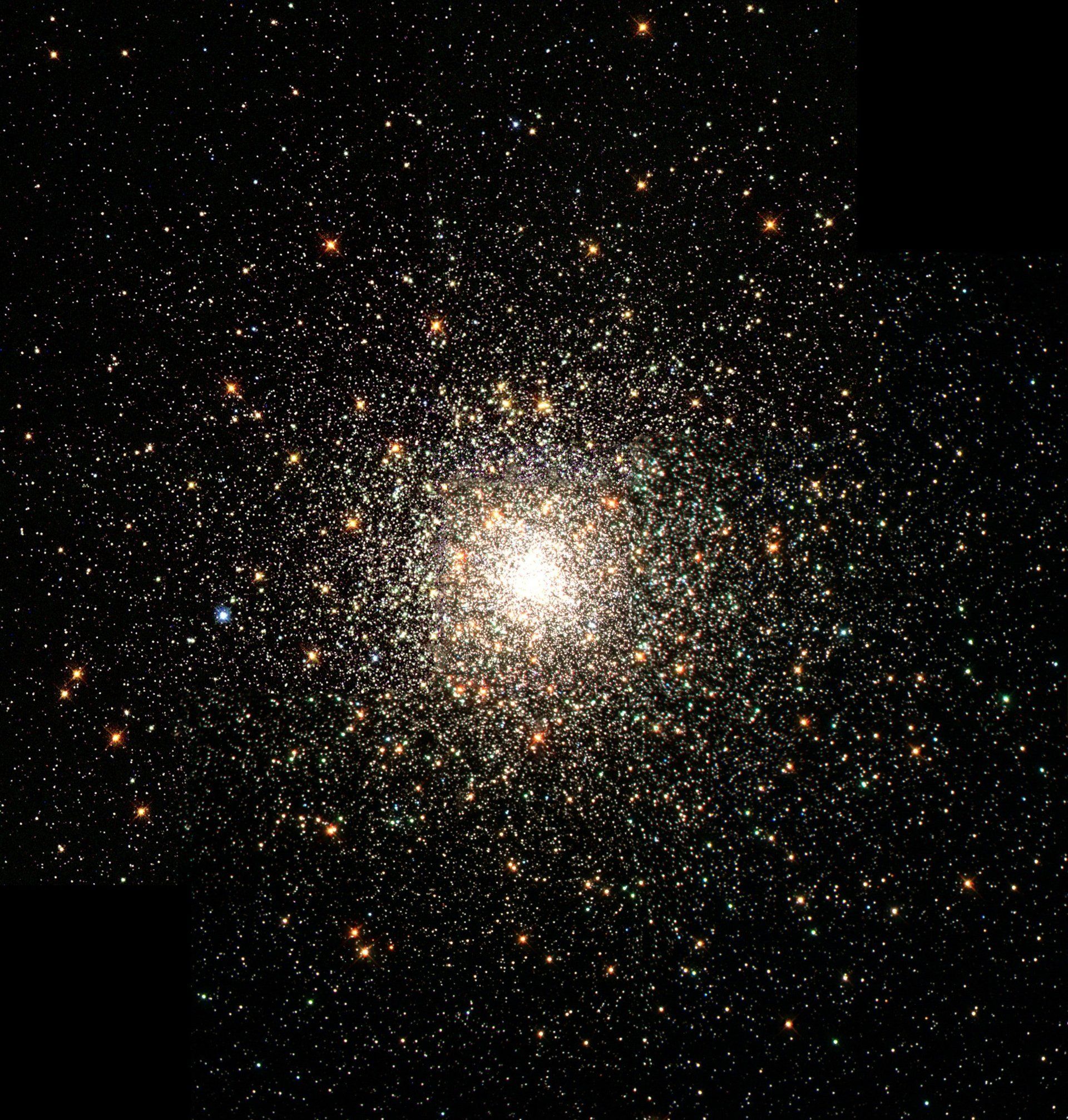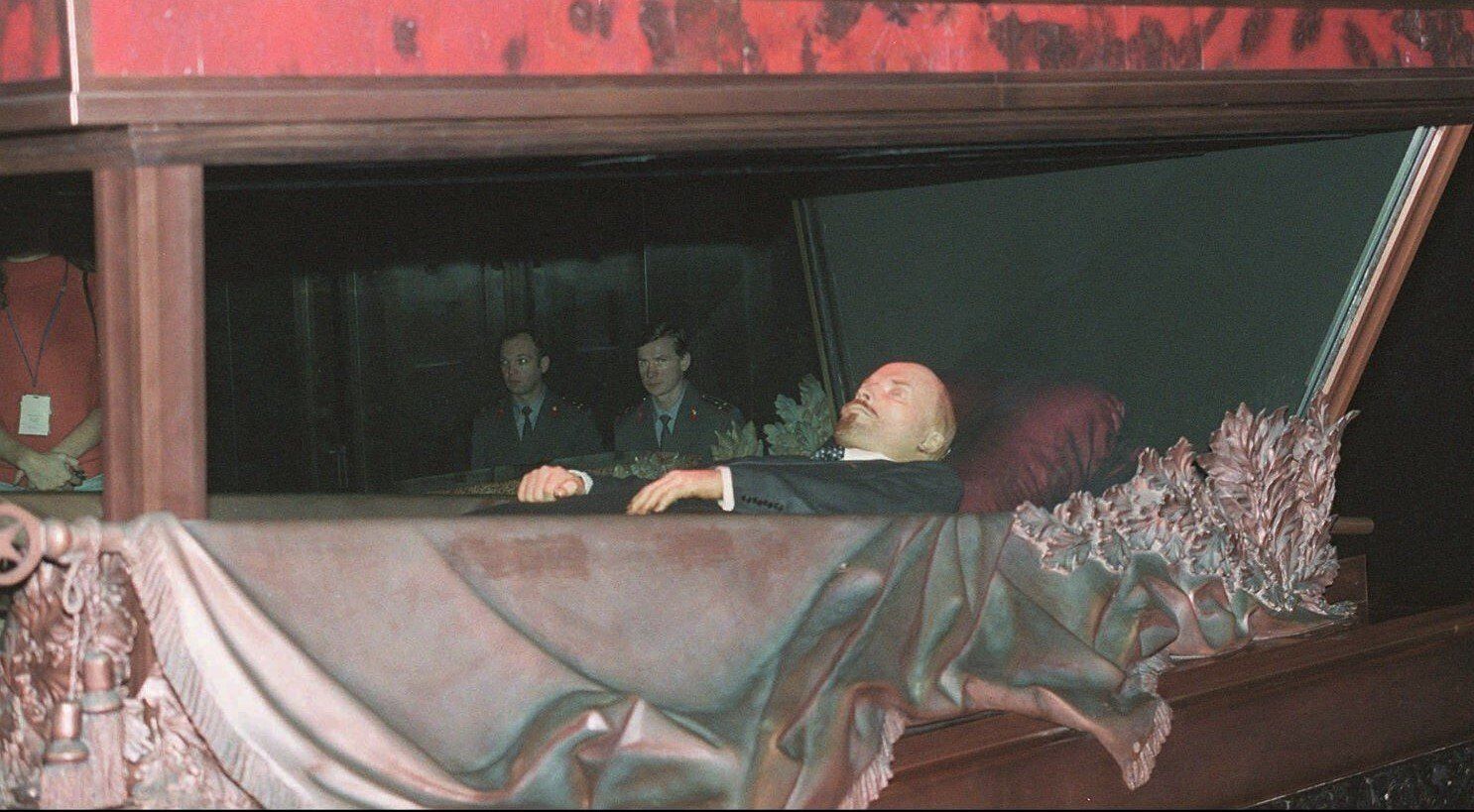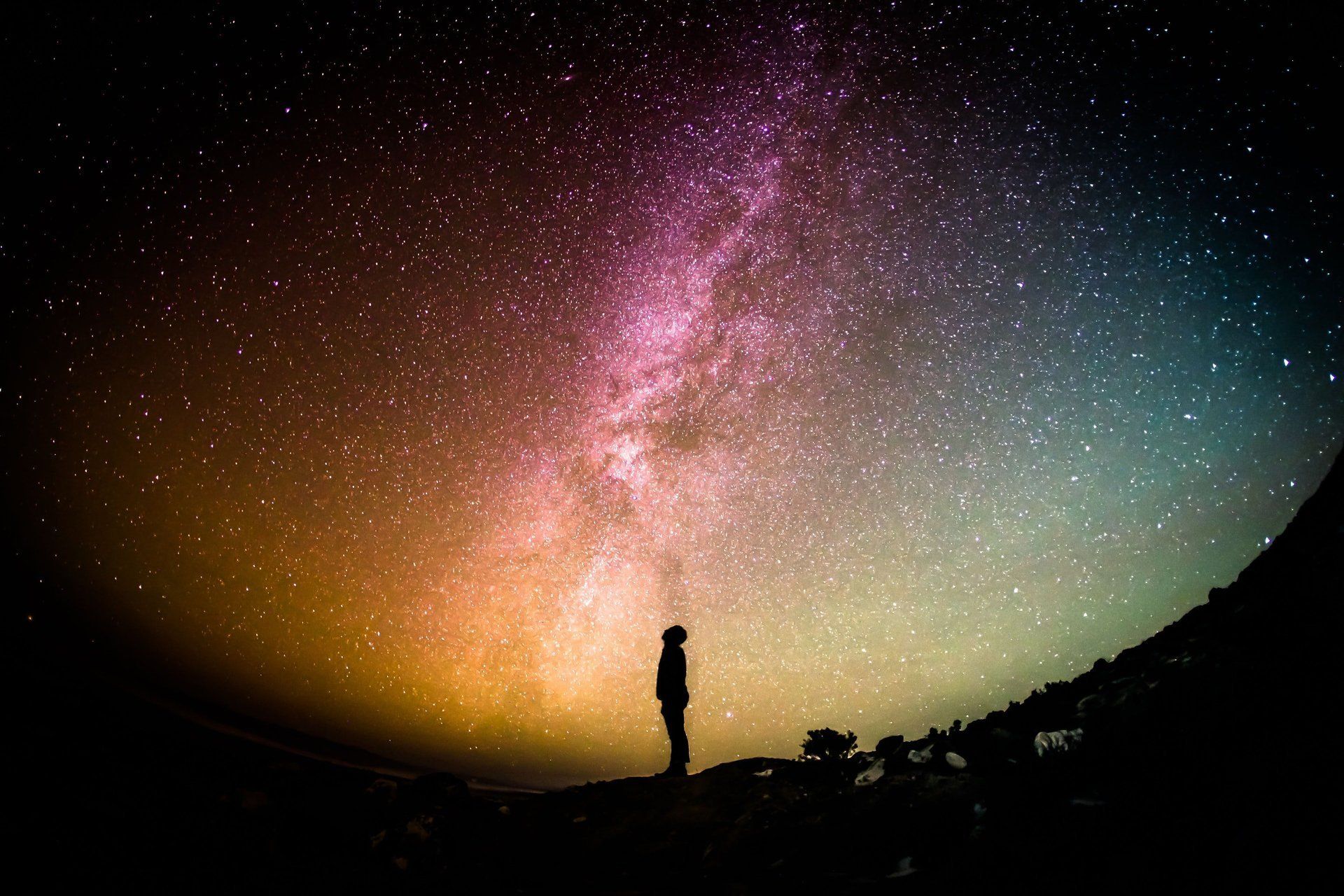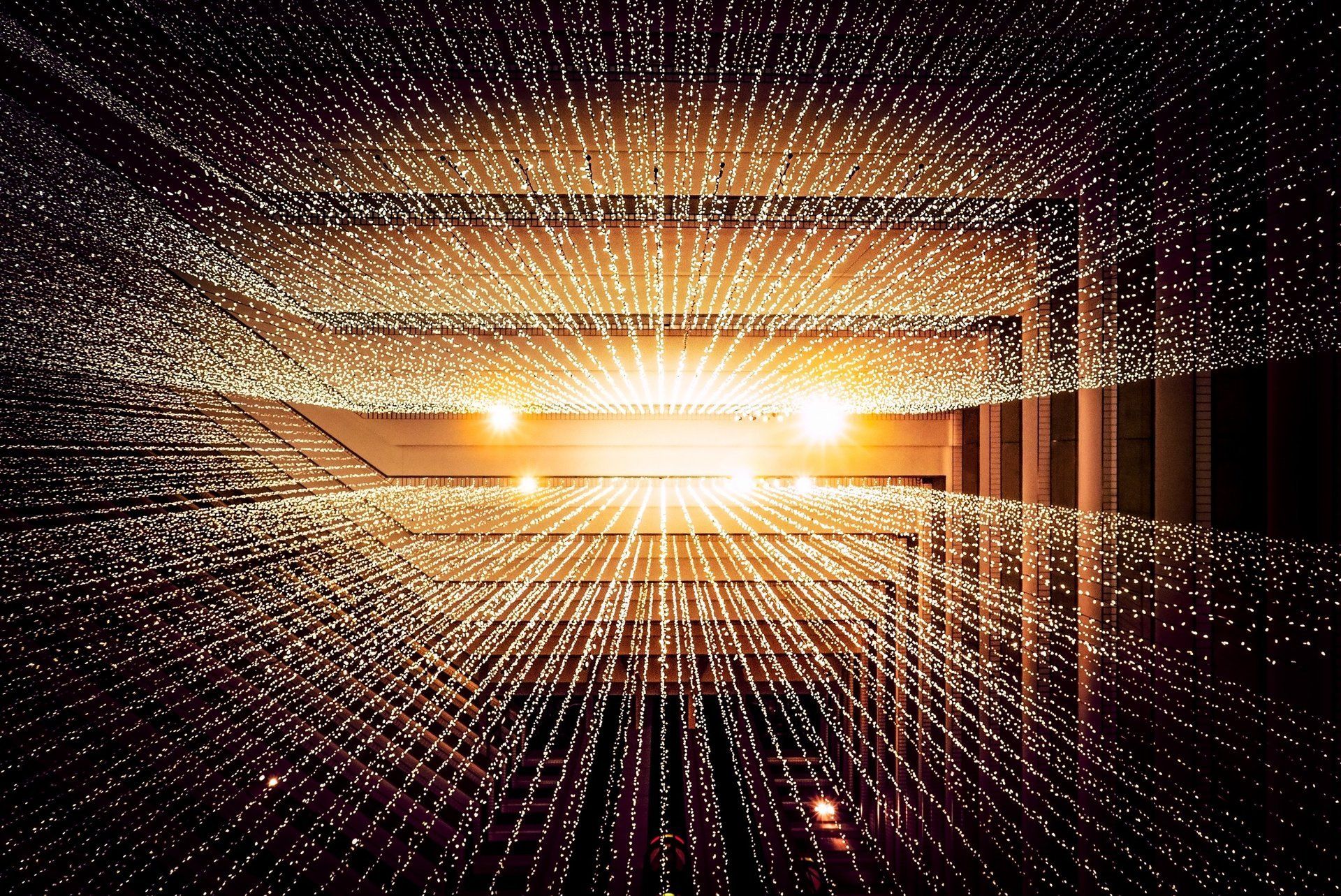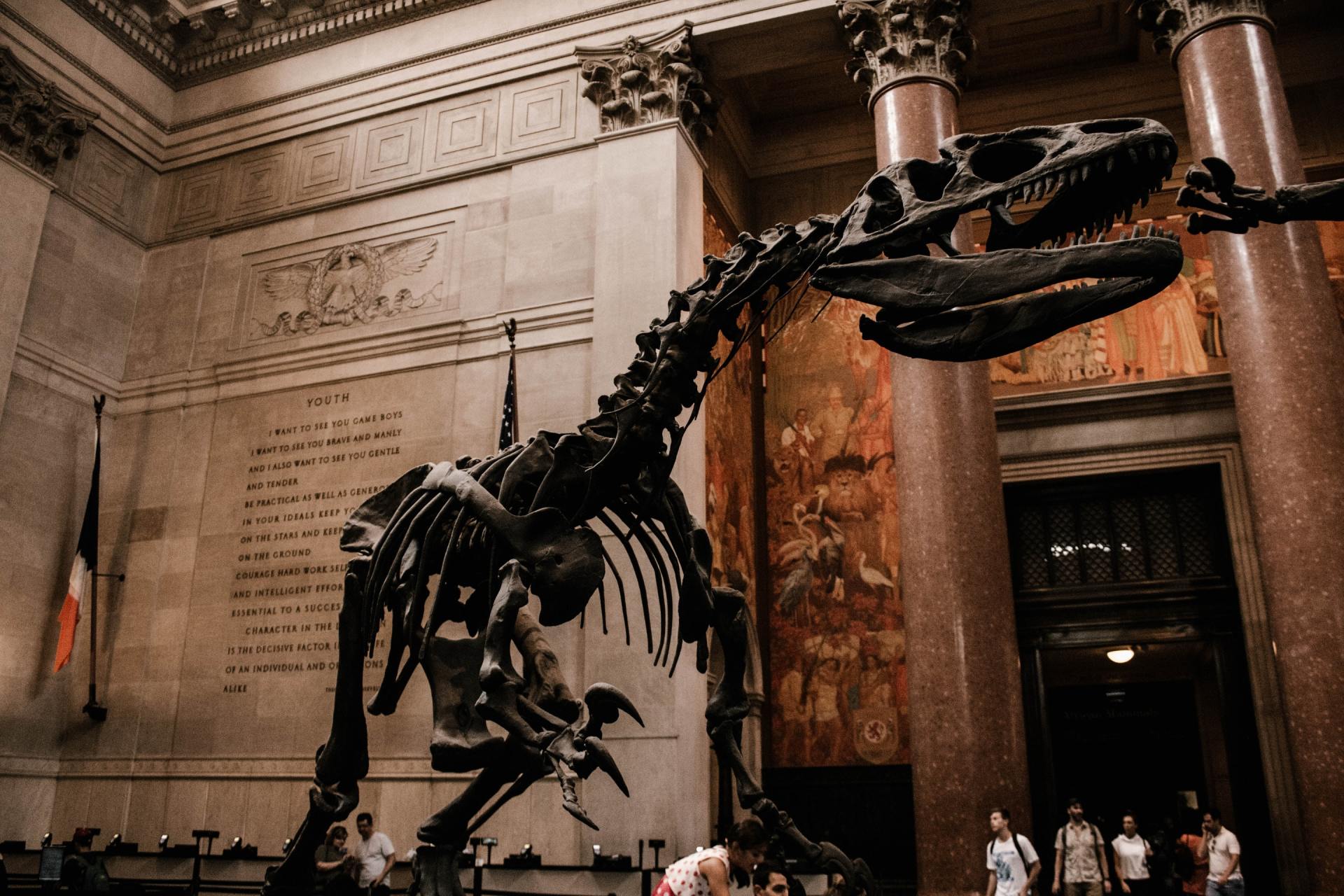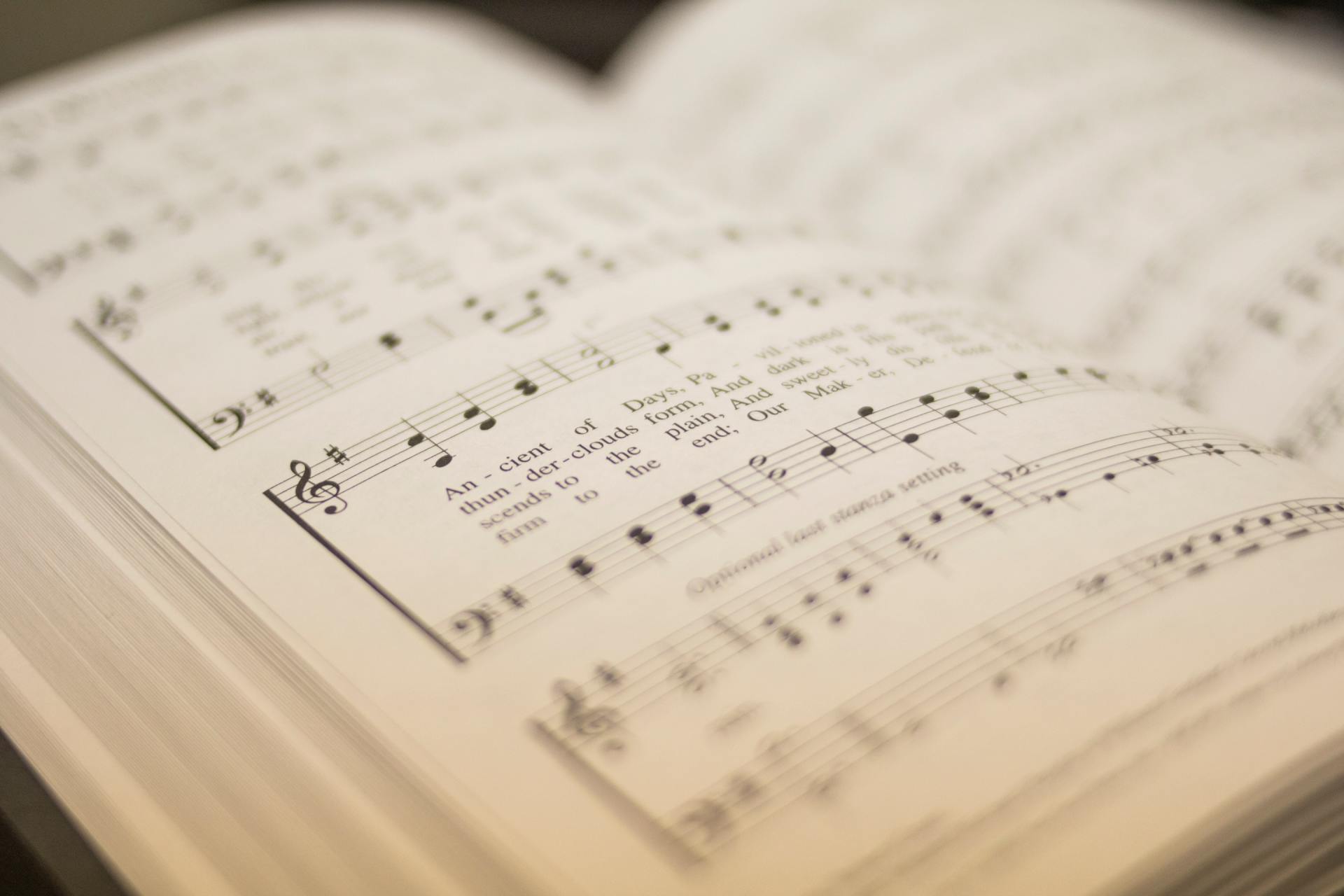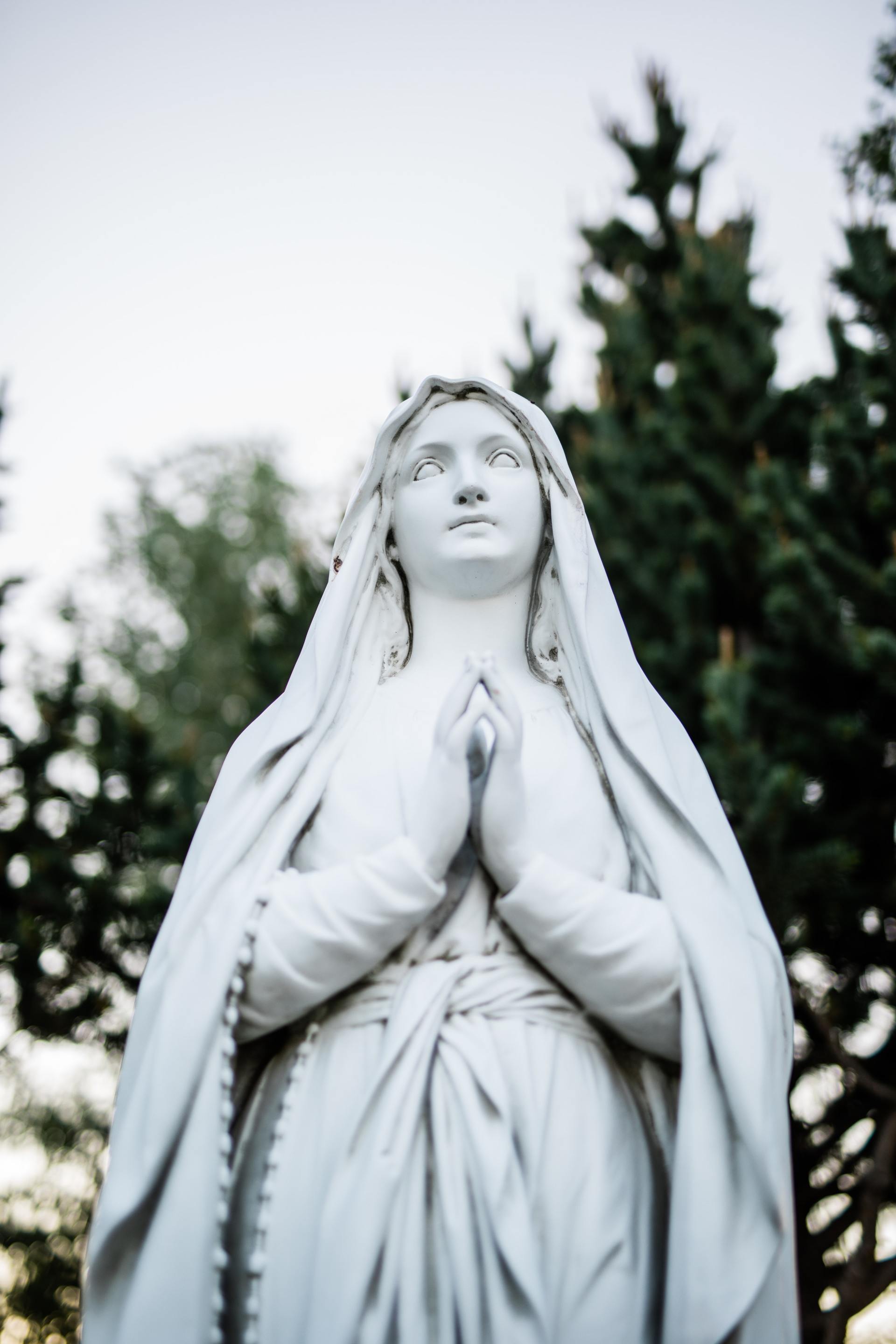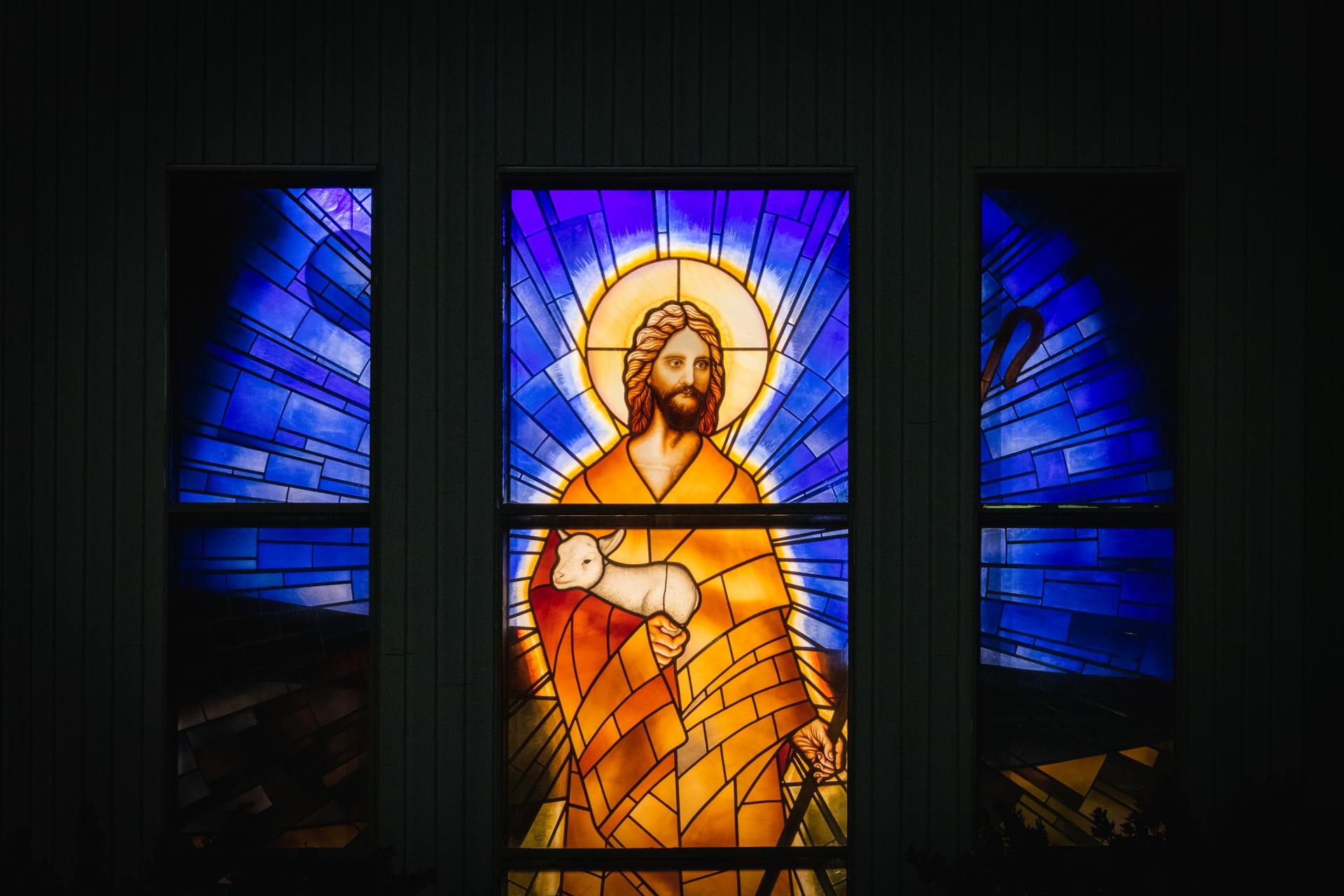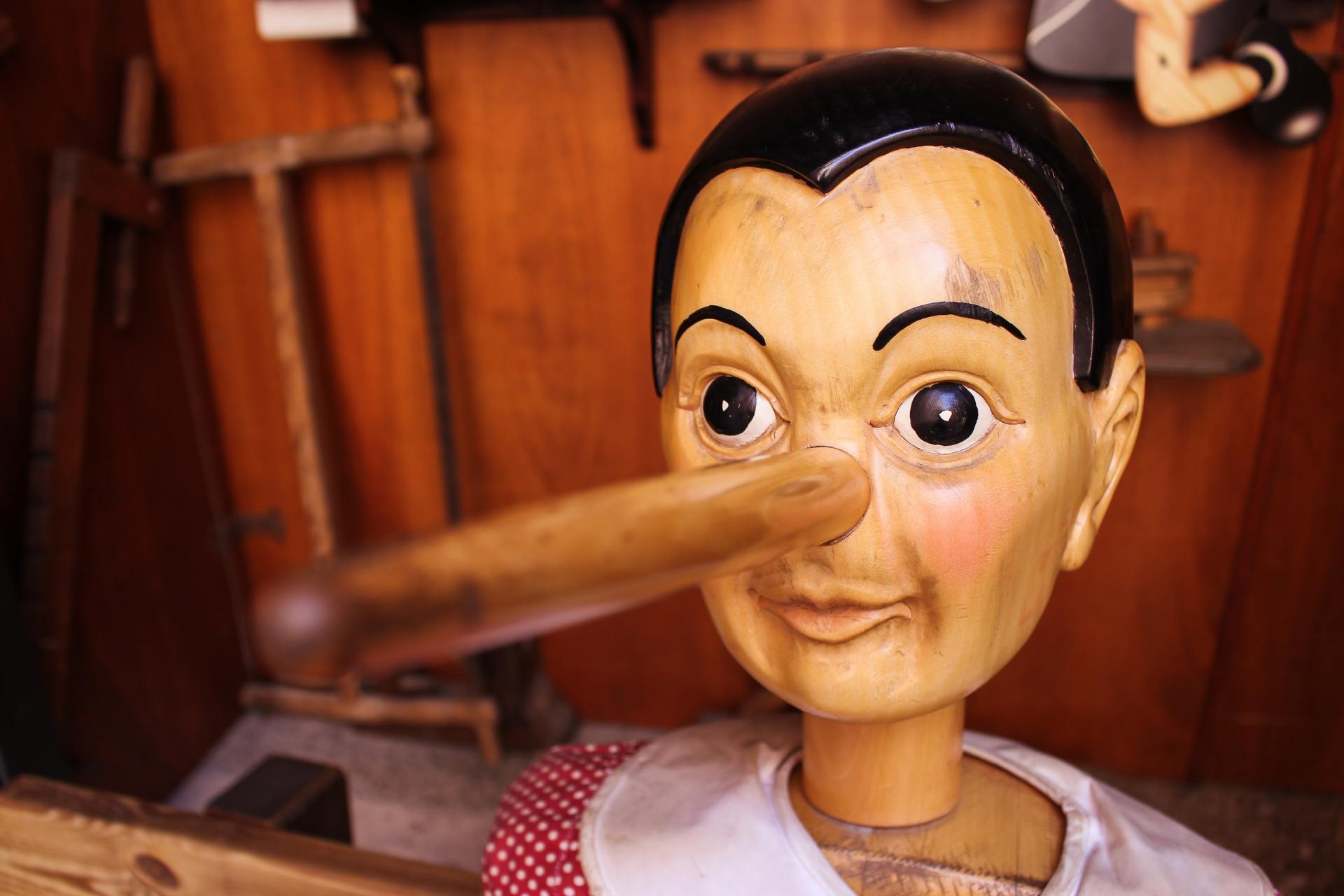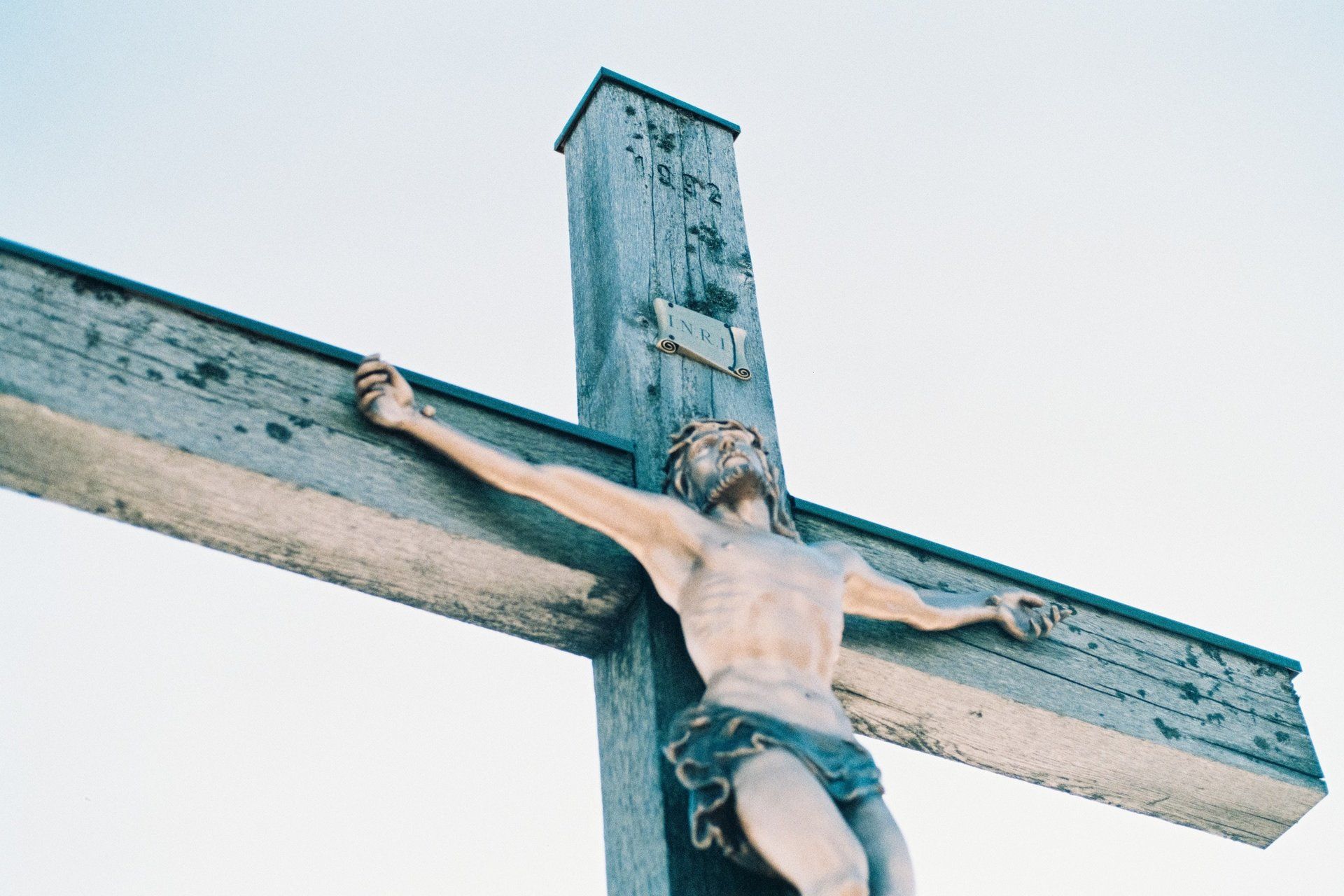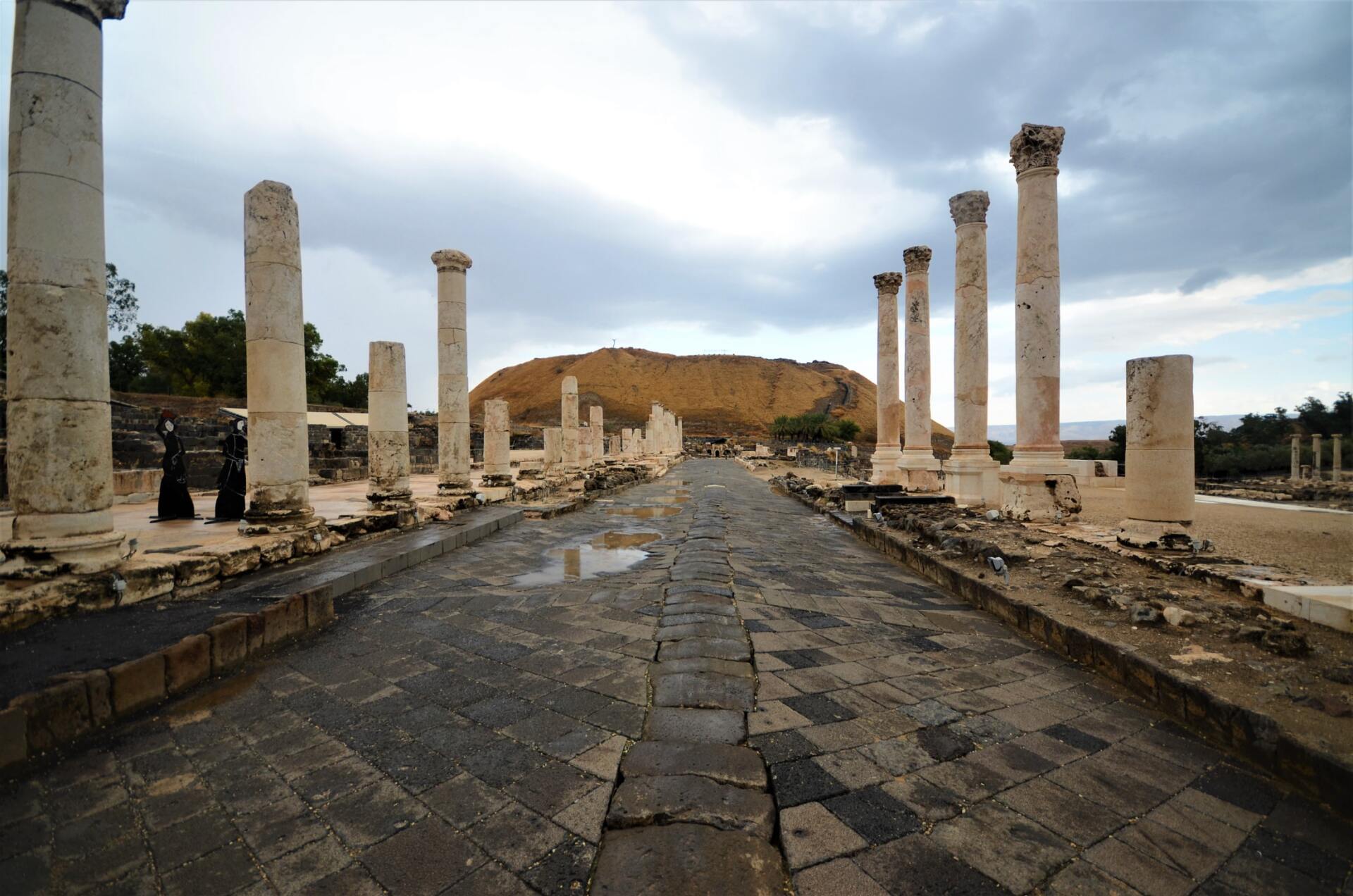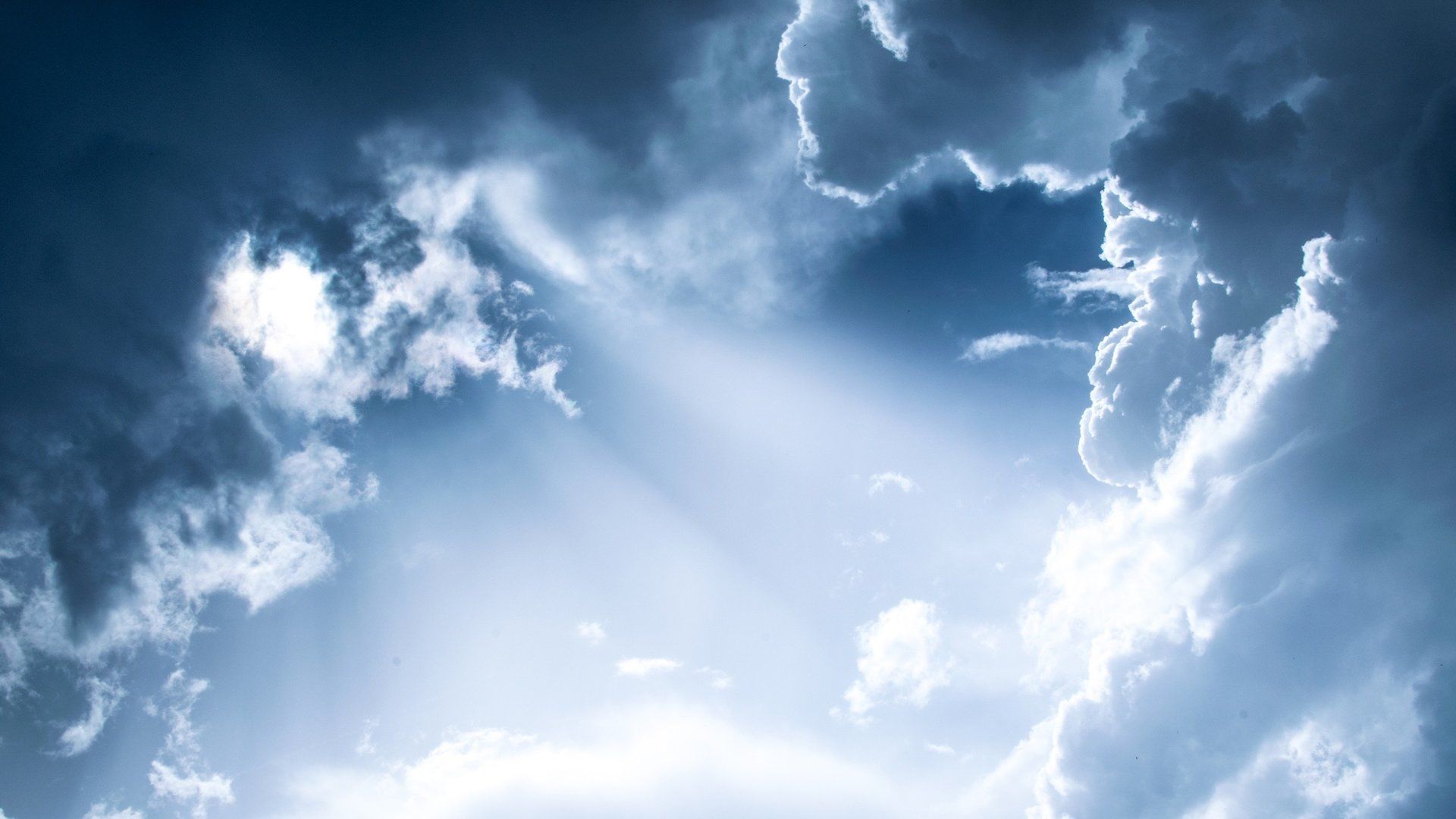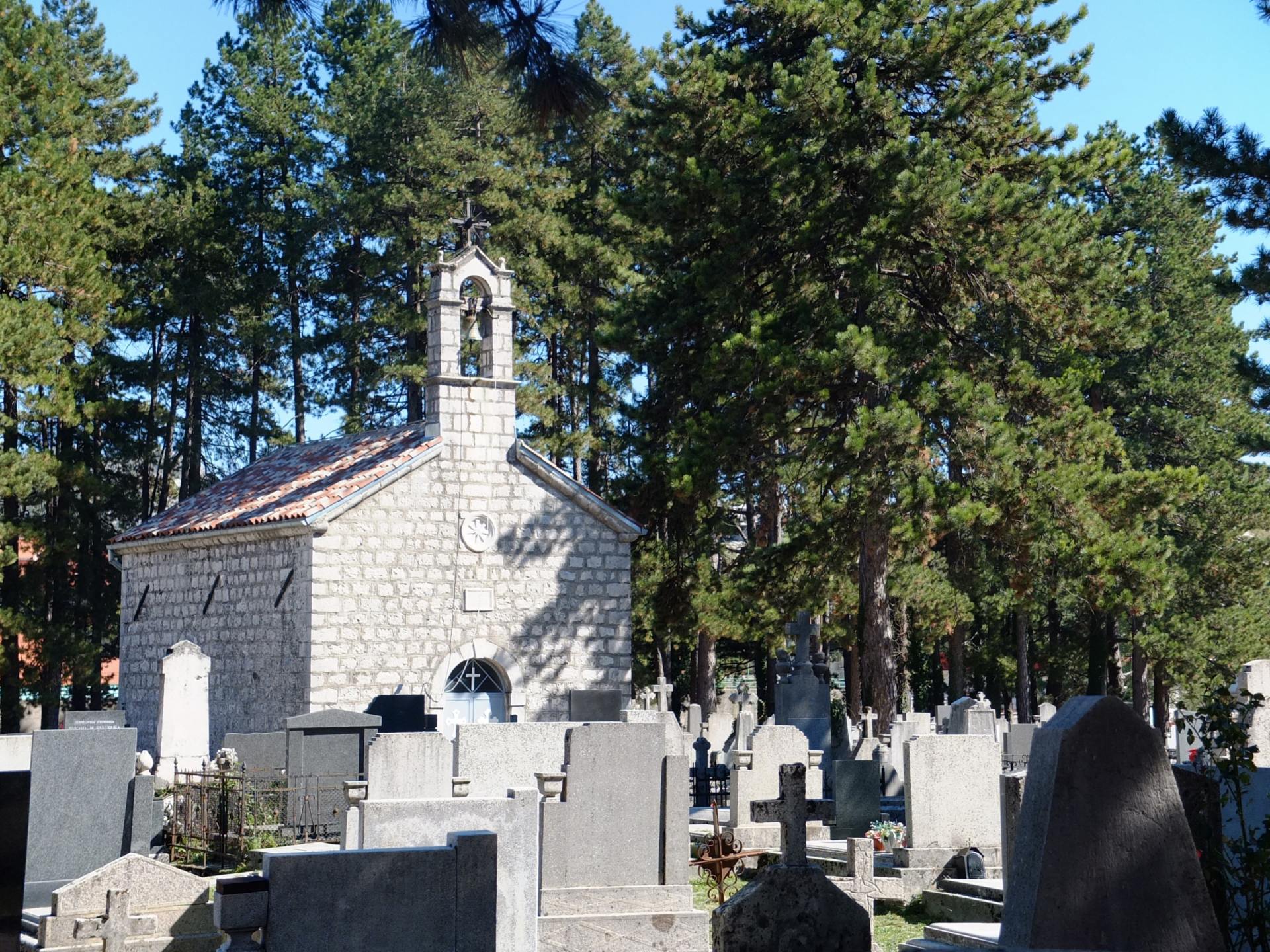August 26, 2021
I am the living bread that came down from heaven; whoever eats this bread will live forever; and the bread that I will give is my flesh for the life of the world. -- Jn 6:51 Want to get as close to God as possible in this life? Then go to Mass and receive Communion. Experience the mystery of "Christ in you, the hope for glory" (Col 1:27). The only miracle recounted in all four gospels, and twice in Mark and Matthew, is the multiplication of the loaves (Mt 14:13-21, New American Bible commentary). Obviously, this miracle held huge significance to early Christians, prefiguring the Holy Sacrifice of the Mass. The first miracle in John, changing water into wine at a wedding (Jn 2:1-11), foretells the changing of one substance into another, at Mass. Incidentally, Jesus made 180 gallons of top-notch wine at that wedding. I always knew God was a partier. At the Last Supper, Jesus ritualized the Mass, commanding that his sacrifice be memorialized: “He took the bread, said the blessing, broke it, and gave it to them, saying, ‘This is my body, which will be given for you; do this in memory of me.’ And likewise the cup after they had eaten, saying, ‘This is the new covenant in my blood, which will be shed for you’” (Lk 22:19-20). During Mass, Jesus, acting through the Roman Catholic priest, in Christ’s name, in Christ’s power, changes bread and wine into Christ’s Body and Blood. "The Eucharist is thus a sacrifice because it re-presents (makes present) the sacrifice of the cross, because it is its memorial and because it applies its fruit: "Christ, our Lord and God, was once and for all to offer himself to God the Father by his death on the altar of the cross, to accomplish there an everlasting redemption. But because his priesthood was not to end with his death, at the Last Supper 'on the night when he was betrayed,' he wanted to leave to his beloved spouse the Church a visible sacrifice by which the bloody sacrifice which he was to accomplish once for all on the cross would be re-presented, its memory perpetuated until the end of the world, and its salutary power be applied to the forgiveness of the sins we daily commit" (Catechism of the Catholic Church 1366). The Holy Sacrifice of the Mass perpetuates the sacrifice of Jesus on the cross. St. Paul concurs: “For as often as you eat this bread and drink the cup, you proclaim the death of the Lord until he comes” (1 Cor 11:26). Jesus, however, is not being crucified again. Rather, we are sharing in his one eternal sacrifice and triumph over sin, death, and the devil. The separation of Body and Blood during the consecration at Mass signifies Jesus' death on the cross, when Christ's Blood was separated from his Body. God’s saving deed is timeless. That’s why the Lamb, Jesus, in Revelation is seen as slain (Rev 5:6). “Christ is the Paschal Lamb without blemish, whose blood saved the new Israel from sin and death. 'The Lamb' is the main title for Christ in Revelation, used twenty-eight times” (NAB commentary). Recall that Jesus was still scarred after his resurrection from his eternal sacrifice: "Look at my hands and my feet" (Lk 24:39); "Jesus showed them his hands and his side" (Jn 20:20). Catholics have a crucifix above their altar, but non-Catholic Christians display only a cross. St. Paul has no problem with a crucifix, "for I resolved to know nothing while I was with you except Jesus Christ and him crucified" (1 Cor 2:2). "The sacrifice of Christ and the sacrifice of the Eucharist are one single sacrifice: The victim is one and the same: the same now offers through the ministry of priests, who then offered himself on the cross; only the manner of offering is different. In this divine sacrifice which is celebrated in the Mass, the same Christ who offered himself once in a bloody manner on the altar of the cross is contained and is offered in an unbloody manner" (CCC 1367). A listener asked EWTN’s Dr. David Anders if the Mass and Crucifixion are the same sacrifice; at Mass are you present at Calvary? Dr. Anders, a former Presbyterian, clarified that: “The Council of Trent taught that the Mass and Calvary are specifically the same and numerically different. Each individual Mass is a distinct oblation [offering] that is distinct from Calvary. “There is a common but erroneous view that the function of the Mass is to serve as a time-capsule or time vehicle that carries you supernaturally back 2,000 years so that the only sacrifice at which you are present is the historical sacrifice of Christ at Calvary. That position is false. “That’s the Calvinist position, the Protestant position, repudiated by the Council of Trent and repudiated again by Pope Pius XII. The Council of Trent, St. Thomas Aquinas, and Pius XII taught--this is the faith of the Catholic Church--that the same victim who died on Calvary, Jesus Christ, who died in a bloody manner on the cross, that same victim is present on the altar of sacrifice at the Mass through transubstantiation, but in an unbloody fashion. “He’s not killed on the altar at Mass. In fact, he’s glorified, but nevertheless the same victim who died at Calvary is present at Mass, once in a dying fashion, now in an undying, never-to-die-again, unbloody fashion. “The priest who offered the sacrifice at Calvary, namely Jesus, was present at Calvary; the same priest is present at Mass through the person of the ministerial priest. Christ makes his own intention present, namely, to offer his Body and Blood to the Father in reparation for the sins of the world. “The reason why Christ died at Calvary, to reconcile God and man, is also present in the sacrifice of the Mass, which is why they are specifically the same. But they are numerically distinct so that each individual Mass is its own oblation; it’s not simply a time portal to the past. A priest can say Mass on Monday for Aunt Edna; on Tuesday for my knee surgery; and on Wednesday for peace in the world” (EWTN’s Called to Communion , 3/22/24, @18 mins.) Dr. Anders "In the Eucharist the sacrifice of Christ becomes also the sacrifice of the members of his Body. The lives of the faithful, their praise, suffering, prayer, and work, are united with those of Christ and with his total offering, and so acquire a new value. Christ's sacrifice present on the altar makes it possible for all generations of Christians to be united with his offering" (CCC 1368). Jesus’ Resurrection is also being celebrated at Mass. Through Christ's victory, God is able to transform bread and wine into Jesus' Body, Blood, Soul, and Divinity. "The whole Christ is truly, really, and substantially contained in the sacrament of the Holy Eucharist" (Council of Trent, Session xiii, October 11, 1551). This transformation is more accurately termed “transubstantiation,” meaning to change one substance into another. “The cup of blessing that we bless, is it not a participation in the blood of Christ? The bread that we break, is it not a participation in the body of Christ?” (1 Cor 10:16), St. Paul rhetorically asks. We celebrate by the victory of his Resurrection. "It is by the Breaking of Bread “that his disciples will recognize him after his Resurrection, and it is this expression that the first Christians will use to designate their Christian assemblies; by doing so, they signified that all who eat the one broken bread, Christ, enter into communion with him and form but one body in him" (CCC 1329). The Church is the Church of the Most Blessed Sacrament as it is the Sacrament of sacraments. “The blessed Eucharist is the sacrament. Baptism exists for it; all the others are enriched by it” (Frank Sheed, Theology for Beginners, 1957 ). The Eucharist is the “source and summit of the Christian life” (CCC 1324). Every devotion revolves around the “Real Presence” of Christ in the Holy Eucharist. Although in his divinity Jesus is omnipresent, he is substantively present Body, Blood, Soul, and Divinity--the whole Christ--in the Bread of Life and the Chalice of Eternal Salvation. He is present in the "very body which he gave up for us on the cross, the very blood which he 'poured out for many for the forgiveness of sins'" (CCC 1365, Mt 26:28), but with no physicality, in an unusual mode of being. The Holy Eucharist is Jesus Christ! Amazing, but true. The Holy Eucharist is the Whole Christ Because "Christ lives, death has no more dominion over him. The bread becomes his body, but where his body is, there he is; the wine becomes his blood but is not thereby separated from his body, for that would mean death; where his blood is, he is. Where either body or blood is, there is Christ, body and blood, soul and divinity. That is the doctrine of the Real Presence" (Sheed, 1957), also known as "concomitance." Holy Communion is real. St. Paul believed it is not symbolic: “Whoever eats the bread or drinks the cup of the Lord unworthily will have to answer for the body and blood of the Lord. A person should examine himself, and so eat the bread and drink the cup. For anyone who eats and drinks without discerning the body, eats and drinks judgment on himself” (1 Cor 11:27-29). If the bread and wine are symbolic, how could one partake unworthily? Or why should a person have to examine oneself before eating and drinking so as not to be condemned if they are merely bread and wine? It’s obvious St. Paul believes that the risen Christ is truly present in the Most Blessed Sacrament, or else he would not be so strict in his exhortation. Some disciples of Jesus had a hard time believing in Holy Communion: “How can this man give us his flesh to eat?” (Jn 6:52). But Jesus did not back down: "Amen, amen, I say to you, unless you eat the flesh of the Son of Man and drink his blood, you do not have life within you. Whoever eats my flesh and drinks my blood has eternal life, and I will raise him on the last day. For my flesh is true food, and my blood is true drink. Whoever eats my flesh and drinks my blood remains in me and I in him” (Jn 6:53-56). Since Jesus literally means eating his body and drinking his blood, “many of Jesus’ disciples returned to their former way of life and no longer accompanied him” (Jn 6:66). And Jesus let them go. If Jesus had been talking symbolically, he would be morally obligated to say so. But because he did not try to explain, he obviously meant it—and they took it—literally. When Jesus promises, “The one who feeds on me will have life because of me” (Jn 6:57), the Greek verb “feeds” means to “gnaw,” like an animal (NAB commentary), further emphasizing the real nature of the “bread from heaven” (Jn 6:50). After all, Christ was born in a feeding trough for animals, a manger (Lk 2:7), in Bethlehem, which means in Hebrew, "House of Bread." Eucharist is from the Greek, meaning thanksgiving. "The Eucharist is a sacrifice of thanksgiving to the Father—a blessing by which the Church expresses her gratitude to God" (CCC 1360). What a great gift God has given us—himself. Do we expect any less from Jesus? What boundless love God has for us to want to unite with us so closely. If all this is really going on at Mass, how could anyone miss Mass? It’s the greatest event in the universe. When we miss Mass, we miss a deep encounter with Christ. When we unite with Jesus in Holy Communion, we are as close as we can get to him this side of eternity. The best possible food to nourish Christ spiritually living in us, is Christ. "When we receive, we have a closer union with Jesus than the apostles had in their three years of companionship, closer than Mary Magdalene had when she clung to him after his Resurrection" (Sheed, 1957). Most joyfully is knowing that God loves us and wants to be incredibly intimate with us. "Taste and see that the Lord is good" (Ps 34:9), literally. Prayer after Communion: "Grant us, almighty God, that we may be refreshed and nourished by the Sacrament which we have received, so as to be transformed into what we consume. Through Christ our Lord." You are what you eat. "I am the bread of life. "--Jn 6:35a

